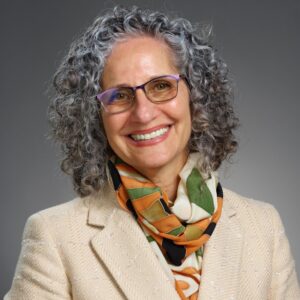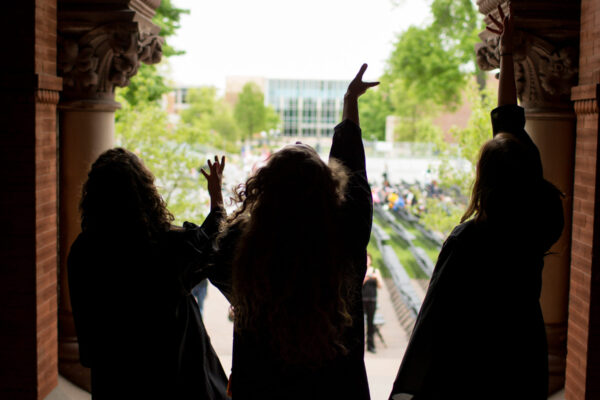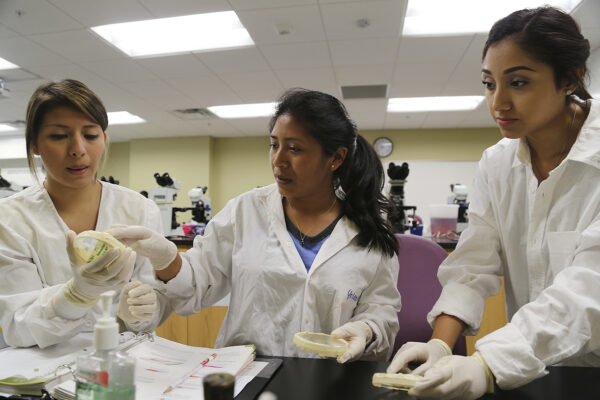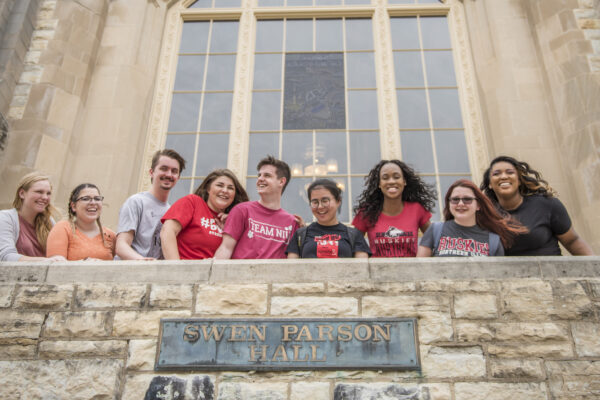Education Secretary Miguel Cardona has laid out plans to hold higher education more accountable for student success. We owe it to our students—and ourselves—to embrace his vision.
Nearly six in 10 students who attend the University of La Verne identify as Hispanic, half of our undergraduates are low-income students, and more than 40 percent are the first in their families to attend college.
Providing these students with a pathway to success is a responsibility we take seriously–not just in our federally designated role as a Hispanic-Serving Institution (HSI), but also because the community we serve deserves nothing less.
The U.S. Department of Education (ED) thinks so too, and it is raising expectations on how colleges and universities prepare all students for the next steps in their lives–be it graduate school, a career, or both. Federal grants, work-study opportunities, and other types of support could eventually be based on an institution’s ability to document its success in placing students in jobs, careers, or the next level of training needed to pursue their passions and dreams.
ED is doing what it can to make this happen through regulations, but almost all federal financial aid is set in statute—and that’s not changing anytime soon. So it’s up to each college and university leader to step up and do all they can to make this happen on their own campus.
I was honored to be invited to attend a recent gathering of 40 university presidents from across the United States at which Secretary of Education Miguel Cardona and Under Secretary James Kvaal laid out the government’s plans to hold higher education more accountable for what happens to students after they graduate. Prestige, Cardona emphasized, is not about rankings, but rather about equity, college completion, and job placement.
It was a message we needed to hear and a message that I, for one, welcome with open arms.
If the pandemic taught us anything, it is that higher education needs to adapt–quickly–to a very different reality. More than any point during our lifetimes, the students and communities we serve are questioning the value colleges and universities provide as employer demands and career opportunities have evolved in ways that were unimaginable five to 10 years ago. Technology, rapidly changing consumer habits, and a fiercely competitively global marketplace have disrupted traditional industries and redefined what employers want and need from the people who work for them.
In the meantime, the equity gap has widened, leaving record numbers of individuals–particularly in communities of color–further behind than ever. According to the Public Policy Institute of California, families in the top 10 percent of income distribution now earn 11 times more than families in the bottom 10 percent. That study also asserts that for every dollar earned by white families in California, Black families earn an average of 60 cents and Latino families earn an average of 50 cents.
Closing that gap was a major emphasis of Cardona’s message to colleges and universities. He believes all institutions should have a written policy on diversity, equity, and inclusion (DEI). Institutions should also document the impact they are having in attracting and retaining students of color and helping them on career paths related to their fields of study.
It will require culture shifts and a whole new way of thinking within the world of higher education. As Cardona said, “The changes we must make may be in contradiction to what are considered sacred cows—things like credit hours, time to degree, GPAs [grade-point averages].”
At the University of La Verne, we are embracing this challenge. Our La Verne Experience initiative puts an emphasis on quality instruction as well as career exploration and readiness throughout an undergraduate student’s experience, including helping to identify career options, internship and community-based learning opportunities, and job search training and assistance.
Our Career Center has entered into partnerships and placement agreements with businesses and employers. These include organizations like Accenture, Northwestern Mutual, the Los Angeles Dodgers, and Infoblox; federal government agencies such as the Bureau of Alcohol, Tobacco, Firearms, and Explosives and the Federal Deposit Insurance Corporation; and health organizations throughout Southern California.
Just this past year, we announced opening of the Randall Lewis Center for Entrepreneurship, Innovation, and Social Impact, thanks to the generous support of one of Southern California’s most esteemed business leaders. The Lewis Center provides entrepreneurial training for several learning cohorts each year, and it will integrate academic and experiential approaches to job creation and long-term career support. The center has a special emphasis on underserved communities in the region.
This is just the start, and we look forward to documenting our graduates’ success as they explore the bold graduate and career opportunities ahead of them.
I appreciate Secretary Cardona’s passion and commitment. If there is one thing that can compare to awarding a degree to a student who is first in their family to attend college, it is knowing that we have prepared them for a successful life and career.
If you have any questions or comments about this blog post, please contact us.



